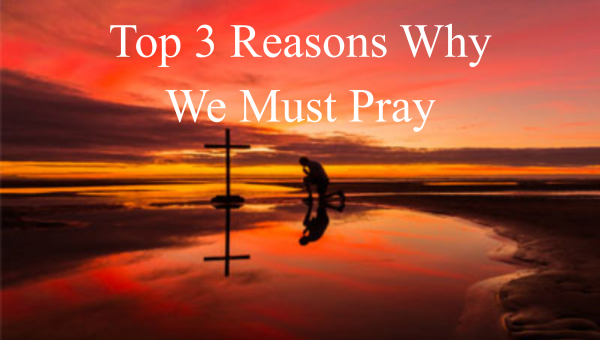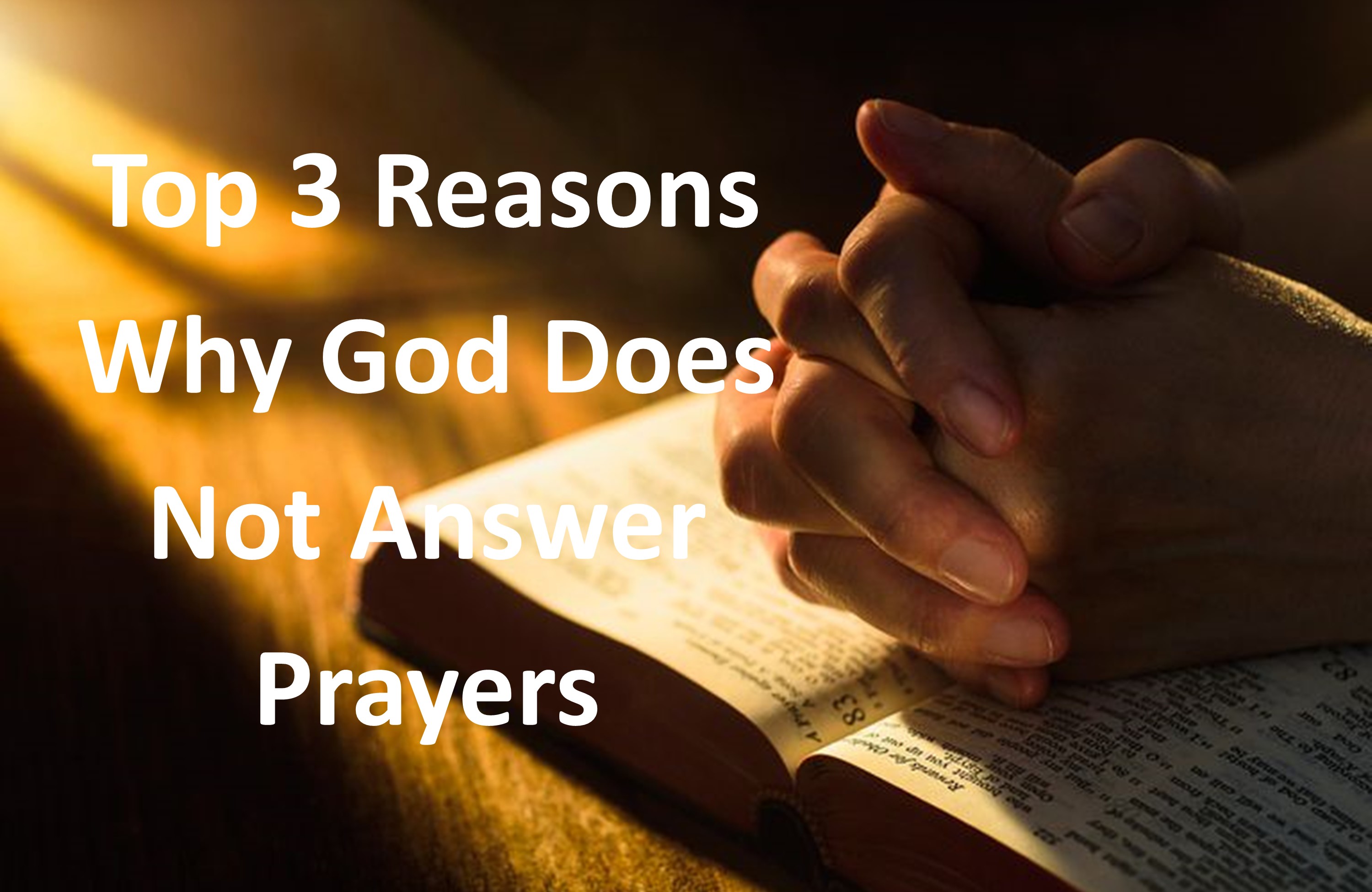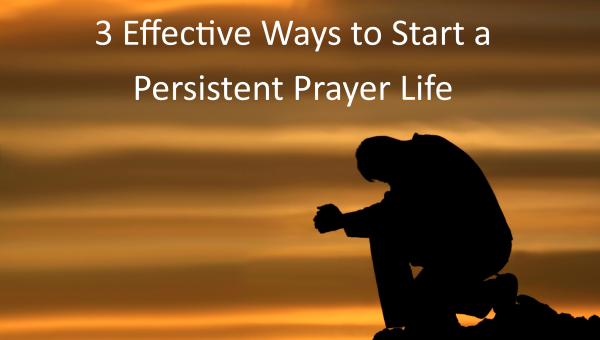
At the rise of the New Year, I spent much time in prayer, seeking our Lord’s direction for the upcoming year. Three words kept repeating endless in my mind: Prayer, Passion, and Purity.
- PRAYER – we, the Church, are the House of Prayer.
- PASSION – we are to pray passionately and persistently.
- PURITY – we are to be pure because God does not listen to the “wicked, but He hears the prayer of the righteous” (Proverbs 15:29).
I hope this year, the Church will be passionate toward praying persistently. So, here are the top three reasons why we must develop an effectual prayer life.
# 3 - We Are in a Spiritual Battle
The Christian journey is described in the Bible as a war between good and evil. We are to be good soldiers in this holy and just war (2 Timothy 2:3-4).[1] Our war is not a physical war where we fight with our neighbors using physical means. Our war is a spiritual war. We are fighting against the “spiritual forces of evil”. As the Apostle Paul writes:
Ephesians 6:12~ 12 For we do not wrestle against flesh and blood, but against the rulers, against the authorities, against the cosmic powers over this present darkness, against the spiritual forces of evil in the heavenly places.
And the mighty weapon at our disposal to fight this spiritual war is prayer. The Bible concludes this section on spiritual warfare with these words:
Ephesians 6:18~ 18 praying at all times in the Spirit, with all prayer and supplication. To that end, keep alert with all perseverance, making supplication for all the saints
Prayer is essential if we are to fight the good fight against evil and against a diabolical adversary.
The disciples of Jesus did battle against a strong enemy. However, they could not cast out this demon that had been inflicting a young boy since childhood. The demon often tried to kill the boy by throwing him into fire or drowning him in water. The only way to save and help this boy was to get rid of this insidious spirit that dwelled inside the boy. The disciple could not do it. They could not cast out this demon. Jesus had to step in. When the disciple asked Jesus why they could not have the power and strength to cast out this unwelcome demon, Jesus said, “This kind cannot be driven out by anything but prayer” (Mark 9:29).
Prayer is the weapon that we have in order to fight this battle.
Later, Jesus told Peter that “Satan demanded to have you, that he might sift you like wheat” (Luke 22:31). The Devil demanded permission to torment Peter. The Power of Darkness had his radar locked in our Peter to destroyed him. Nevertheless, Jesus encouraged Peter by telling him, “But, I have prayed for you …” (Luke 22:32). “I have prayed for you …” Amazing. The best encouraging thing that we can do for people is to pray for them. The best defense (and offense) that we have against these powerful demons is prayer.
Are we in a dark place? Do we know someone going through dark times? Prayer is the weapon that we have in order to tear now this darkness.
2 Corinthians 10:3-4~ 3 For though we walk in the flesh, we are not waging war according to the flesh. 4 For the weapons of our warfare are not of the flesh but have divine power to destroy strongholds.
Prayer is a powerful weapon because it is a divine weapon.
# 2 - We Have Many Needs
Our life is a life of struggle. The second law of thermodynamics says that all things go downhill. Everything naturally falls apart. Prayer is the glue that keeps things together. Prayer is the oil that keeps all the clogs running smoothly.
We have real, legitimate needs. And many times, things are out of our control because all things naturally fall apart. So, instead of going to the One who control all things in prayer, we take matters into our own hand and make things worse. The Bible says in James that:
James 4:2~ 2 You desire and do not have, so you murder. You covet and cannot obtain, so you fight and quarrel. You do not have, because you do not ask.
With all the needs that we have, we should go to knees in prayer.
By the way, we pray not because prayer works. We pray because God works. We pray because God answers prayer.
And the Number One reason why we MUST pray …
# 1 - We are commanded to pray
This is the ultimate reason why we pray. We pray because our Lord commands us to pray. We pray because this is what Jesus wants all those who are called by his name (i.e. Christians) to do.
When people hate us and seek to insult us, Jesus commands us to “pray for those who abuse you (Luke 6:28). This is not a suggestion that we should pray. This is a command that we must pray.
The Bible tells us to:
Colossians 4:2~ 2 Devote yourselves to prayer …
And to:
1 Thessalonians 5:17~ 17 pray without ceasing …
Many Christians think that praying is an option for them. They choose whether they will pray or not to pray. They choose to pray if the feel like it. Or they choose to pray if they believe in it. But praying is not an option for Christians. Praying is a command that we must pray.
And because praying is a command, to not pray is a sin.
In 1 Samuel chapter 12, the sons of Israel committed a terrible sin by rejecting God as their King and wanting a man to be king over them. So, they asked Samuel to pray for them.
1 Samuel 12:22~ 19 And all the people said to Samuel, “Pray for your servants to the Lord your God, that we may not die, for we have added to all our sins this evil, to ask for ourselves a king.”
What the sons of Israel did was indeed a sin that would incur God’s judgment. They asked Samuel to intercede and pray for them. However, the greater sin would be for Samuel to fail to pray for them. And Samuel recognized this. He told the sons of Israel:
1 Samuel 12:23~ 23 Moreover, as for me, far be it from me that I should sin against the Lord by ceasing to pray for you
The people of Israel rejected God by not wanting Him as their King. Samuel was not about to reject God by not praying and interceding for His people.
With these essential reasons why we must pray, why not start praying today? And on Sunday, why not join your Church during the prayer meeting? And if your Church does not have a prayer meeting, why not start one? Gather a few obedient people together and start praying for the Church.
See also other articles in this series Prayer, Passion, and Purity:
- 3 Effective Ways to Start a Persistent Prayer Life
- Top 3 Reasons Why God Does Not Answer Prayers
- The Battle That Goes On
[1] 2 Timothy 2:3-4~ 3 Share in suffering as a good soldier of Christ Jesus. 4 No soldier gets entangled in civilian pursuits, since his aim is to please the one who enlisted him. (ESV)





